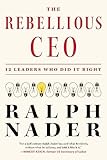Do not be impressed by the title of Al Gore’s The Assault on Reason with an expectation that Al has become a philosopher. You will not have to renew your acquaintance with Immanuel Kant, John Locke, David Hume, J.J Rousseau, Voltaire, Thomas Paine & etc. Bear in mind that Al is no more familiar with these Enlightenment icons than you are, though he does drop a name here and there. The reader’s goal should be simply to assess whether this latter day politician is himself capable of exercising a human faculty our founding politicians of 230 years ago regarded as the pinnacle of human sophistication. Al does, after all, devote considerable effort to aligning himself with these exemplars of reason.
Let me suggest that reason is commonly considered in our day to be the mind in the machine, the CPU, the executive director. None of the above enlightened thinkers would question that this is what reason does, though they would not agree that it describes what reason is in itself, and they would find the computer/machine metaphor completely obscure. Reason analyzes experience critically according to rules of logic and common sense so that it may discover from a range of options the best moves to make. Emotion is the opposite of reason because it does not reflect critically on experience. In a crowded cinema a cry of “Fire!” will evoke two types of reaction. One person will look for evidence of fire while considering escape options, and another will simply rush for the nearest exit with little or no reflection. One will react reasonably and another will react instinctively. Since people are not truly instinctive creatures, like animals, it would be more true to say that the non-reflective person is excessively credulous and acts on faith, never pausing to consider that the cry of “Fire!” might be a hoax, or that there might be better routes of escape.
Al Gore finds that this capacity to reflect on experience, or reason, is being undermined by television. In his view, television alters brain function. “An individual who spends four and a half hours a day watching television is likely to have a very different pattern of brain activity from an individual who spends four and a half hours a day reading,” he says. He refers to the work of behavioral psychologists, who often call themselves “neuroscientists”, to support the idea that television is an hypnotic device that bypasses the higher cognitive centers to directly stimulate the amygdala and hippocampus regions of the brain. “It’s almost as though we have a ‘receptor’ for television in our brains,” says Al, a little breathlessly, as he reaffirms Marshall McLuhan’s Zen-like 1964 pronouncement that “the medium is the message”.
Never mind that the same pattern of diminished brain activity occurs at the 50 yard line in the Super Dome without benefit of television. Neuroscientists have not yet wired up a cheese head, so far as I know, to compare his brain activity (or lack thereof) with the brain patterns of a typical “24” television program viewer; but reason suggests they are similar, if not identical, since virtual action and excitement affects the brain in a similar or identical way to real action and excitement. Everyone knows this, but few suspect that some cheese heads are actually egg heads in disguise who return to their academic and cerebral vocations after the game. And strangely enough, without their cheese hats on their brain patterns once again assume the profile of their normal cerebral bookish selves.
Brain activity patterns change with whatever activity the brain owner is engaged in and unless the brain is exposed to a neuron-destroying death ray, its activity patterns as measured by an electroencephalograph or an MRI device will express as they have always expressed in rational creatures such as we.
This is well-trod, familiar territory since Jerry Mander’s Four Arguments for the Elimination of Television appeared in 1978. Television inspired such fear and loathing in Mander that he believed all right-thinking small “D” democrats should consider eliminating it. This Luddite proposition never gained any traction, of course, but the dumbing-down effect of the insidiously flickering screen has become well known, in spite of the fact that when you turn on your TV, you do not see a health advisory like you do on a pack of cigarettes warning you that television-induced amygdala/hippocampus stimulation may cause viewers to drink the Kool Aid or salute the Fuhrer.
Even so, most people are aware of the diminished state induced by television which is why it is commonly referred to as the “boob tube”. Some people, from right-wing home schoolers to transcendental lefties, rebel against television mind control and try to cure themselves of what they perceive to be drooling, unproductive, addictive behavior, but these puny attempts at self-liberation are futile against the lure of television-induced states of mental retardation, which are, in fact, quite enjoyable, as are sports spectacles, car races, gambling, sexual groveling, and other activities cherished by the lizard brain, which often feels itself disrespected by the higher rational functions of the cerebellum and its holier-than-thou attitude.
The assault on reason and the threat to “the marketplace of ideas” that was originally inspired by the invention of the printing press comes as a result of the displacement of print media by the hugely seductive and universally available television media, according to Al Gore, which occurred on or about 1963. “The printing press democratized knowledge and made the idea of America thinkable…” he says, as western people emerged from the theocratic tyranny of faith-based medieval serfdom. But it is at this point in his discourse that Al himself begins to assault reason.
Reason tells us that the printing press did not democratize knowledge; it was the owners of the printing press in collusion with a new breed of educated peasants who used the printing press to democratize knowledge. Thomas Paine’s Common Sense was not printed on a press operated under license from the king, but by an indy operator like a Benjamin Franklin who catered to the consumer demand of an emerging, literate middle class. Television for all its hypnotic power does not likewise disrupt or displace the marketplace of ideas just because it exists and people watch it. People do not experience irreversible brain changes and become incapable of reasoning. It is the owners of television and their insidious programming who do all the damage.
Television is innocent. The medium may be a message of television, but it is the ownership of the medium that will determine the overall effect the medium has. It is the content that assaults reason, not the medium. Television is simply a vehicle for virtual experience. Virtual experience is a good thing. We have it every night when we sleep. Television is a dream machine. The content of the dreams is what matters.
It may seem unreasonable to suggest that Al Gore, an intelligent and educated man, does not distinguish between an instrument and those who use it, but this is in fact the case. Consider this statement: “Even though logic and reason have played more prominent roles in the medium of print, they can also be used along with images to powerful and positive effect in the television medium.” We are greatly relieved to hear this.
Apparently, Al has never thought much about poetry, or fairy tales, or the fiction of Alain Robbe-Grillet, otherwise he would not assume that printed words by virtue of belonging to the “print medium” contain more logic and reason. Video or film does not contain less logic and reason simply because it is not tied to the printed word and is delivered to the brain by way of a flickering screen. The statement is absurd.
Al the philosopher is so entranced by his own conceits that he falls into a man hole. Perhaps he is watching too much television?
It is the political inconvenience of the truth that befuddles Al’s reasoning capacity. Even though he acknowledges the concentration of ownership in a few media conglomerates that effectively destroys a free marketplace of ideas, he seems to view this as another inherent characteristic of the medium itself. Television requires such large capital investment that only deep pockets can operate television networks, he says. Elite corporate interests inevitably gain control of media access and exploit it for their own agenda.
So it goes, sighs Kurt Vonnegut from the ether.
Reason requires that if one wants to democratize television so that it promotes a free marketplace of ideas one should call for the political regulation of media ownership to prevent monopolistic control, especially given the fact that the airways, like the air itself, are the common property of all the people. Al nowhere suggests that this is possible or even desirable, even though he credits the early regulation of radio with preventing it from becoming the propaganda weapon it was in the pre-WWII fascist countries. He is unambiguous about the need for protection of the internet “…through the establishment of fair rules and the exercise of the rule of law.” In fact, “the survival of our Republic” depends on the regulation of the internet to insure that it remains an open forum for “the conversation of democracy”.
But this regulatory zeal Al professes to prevent the usurpation of the internet medium by minority corporate interests does not apply to the television medium which is the source of the assault on reason he abhors.
He hasn’t got anything to say about television qua television that hasn’t been said before, and better. Though he spends the better part of his book kicking the dying horse of the rotten Bush Administration, he does not speak to how the Bush cabal exploited the television medium to achieve its evil goals of imperial conquest and subversion of the Constitution. It is, after all, the Bush Administration’s calculated use of television as a propaganda weapon that constitutes the assault on reason and the attack on the free market place of ideas.
One has the impression he’s using his lame media critique as a means of establishing liberal credentials and setting the reader up for the Al Gore solution, based on what the dust jacket calls his “visionary analysis” of the contemporary scene. That solution is, of course, the internet, with a capital “I”, the newest medium that will theoretically democratize television by allowing everyone to produce and distribute their own television content via cable channels such as Current TV (Al’s pioneering project of interactive television) in coordination with websites such as www.current.com, a Youtube imitator Al put on the web as counterpart to Current TV. Amygdala/hippocampus stimulation is not a bad thing, apparently, if everybody can do it to everybody else.
One also has the impression that Al’s reasoned analysis of television and its destructive effect on “the conversation of democracy” is an elaborate sales pitch for his Current TV project. He ignores what is actually going on in the realm of conventional television like every good salesman who doesn’t want you to consider alternatives.
Old style, pre-internet television, according to Al, cannot save our republic because it is not “interactive”, which means it talks to you and you can’t talk back. The inevitable monopoly ownership has shut down the conversation of democracy and assaulted reason, which can only be remedied by the internet and Current TV. His vision appears to be a populist concept in which programming is supplied by the viewers themselves, something resembling a television blog, a big screen Youtube.
And this visionary project of Al’s is affordable, whereas a conventional television network on a par with the corporate networks is not, according to Al. This is obviously not true since bone fide viewer supported networks such as Free Speech TV and Link TV have emerged from the co-opted and corrupt PBS model to stem the assault on reason and rescue the marketplace of ideas from the danger of monopolistic ideology and sterility. FSTV and Link TV programming does not censor the conversation of democracy, as Al himself does in The Assault On Reason by refusing to confront the corporate theft of the mass media, the impeachment of the derelicts in the White House, the 911 truth movement, or the misuse of Supreme Court power and the blatant electoral fraud that cost him the presidency in 2000. This part of the democratic conversation is politically inconvenient for Al for some obscure reason. It is truly a remarkable achievement that ostensibly liberal, progressive, and wannabe populist Al Gore could write this book and never even mention these bedrock issues of our day.
FSTV and Link TV content reflect the preferences of the viewers and not the corporate advertisers, since there are none, and not the political elite or the government, since financial support comes from the viewers alone. If you are a 911 truther, you will find programming that reflects your perspective. If you are disgusted with the corporate propaganda of the mass media, if you advocate impeachment, if you dispute the legitimacy of the IRS, if you find yourself excluded from the narrow conversation in the mass media, you will discover truly independent perspectives and alternative solutions right there on your conventional cable or satellite television source.
The concept of “interactive” is actually deceptive. “Responsive” is a better term since it is difficult to understand what interactive in real time might mean, beyond instant polling and e-mail rants from viewers with thumbs up or down.
Al Gore is not a visionary. To discover in what category of human discourse Al’s Assault on Reason should be placed, one can consult Princeton philosopher Harry G. Frankfurt’s groundbreaking study, On Bullshit. Al is a snake oil salesman, in other words. If he’s a philosopher he’s a slithering sophist whose purpose is to conceal his lack of bone fide political vision, and his singular lack of political courage. Together with Bill Clinton, Al sponsored the on going corporate theft of mass media in the Telecommunications Act of 1996 which released the large predators from the shackles that restrained their cannibal impulses. It should come as no surprise to those who have followed Al’s political career that his capacity for reason has been diminished by his reverence for corporate power. He cravenly fled from the scene of the crime of the 2000 election, in which both he and the Constitution were the chief victims and then piously swore fealty to the perp, George W. Bush, Inc, following the destruction of the WTC. He has never questioned the official explanation in spite of its glaring lack of both logic and common sense.
Perhaps he believes he can simply walk away from his own shortcomings. But he can’t. They are glaringly obvious in his book. The American public, ultimately, will be very sad indeed if this man walks on to the floor of the Democratic National Convention and is nominated for president based on his Oscar and his Nobel Prize. Celebrity is a thin disguise.
If there’s one positive quality in the character of George W. Bush, it’s that he knows he’s a bullshit artist. His famous smirk is a caveat emptor the public has taken far too long to recognize. Al Gore lacks this essential self-awareness. To quote his quotation of Leonardo da Vinci: “The greatest deception men suffer is from their own opinions.”










